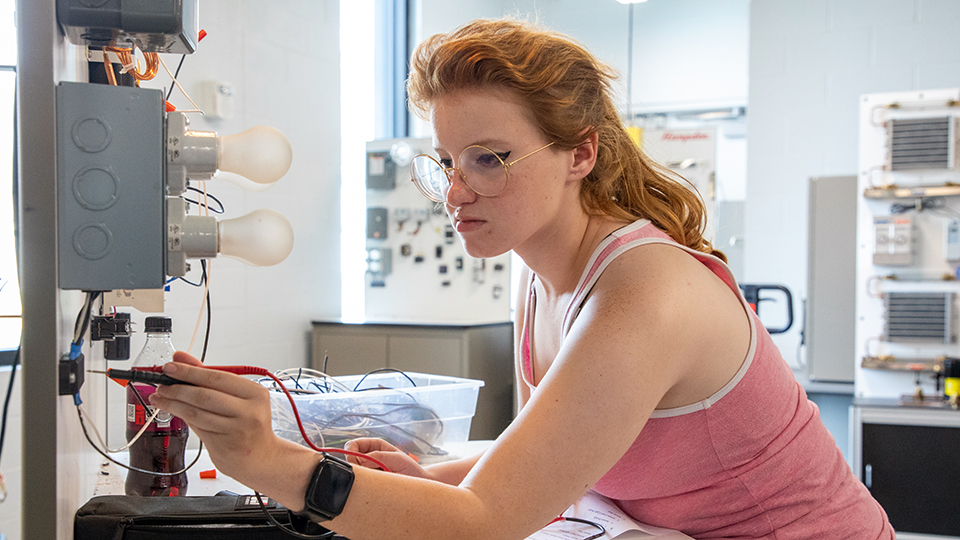Discover how temperature and air quality affect HVAC systems in a program accredited by PAHRA for meeting and exceeding industry standards.

Develop, design, test and install heating and cooling systems
Learn Heating, Ventilation, & Air Technology (HVAC) electrical fundamentals, as well as installation, duct design, service, and repair of gas and electric furnaces, heat pumps, and central air conditioners. Understand basic mathematical and scientific principles of HVAC and how air quality affects temperature, that also affects the build of heating and cooling systems.
Hands-on lab work with real equipment teaches you the mechanics of the HVAC business. You will also take courses in composition, business mathematics, and communications, which are essential in any career.
The HVAC, AAS, prepares you for the North American Technician Excellence (NATE) certification.
Complete the HVAC certificate during the first two semesters. Complete the third and fourth semesters, and intern with an area employer to apply your training in working environment.
Nationally accredited program, interactive experiences
Work on actual HVAC equipment and learn from the best in the business – professors who are highly qualified HVAC business individuals with vast knowledge of the industry. Small class sizes allow for one-on-one interaction to answer questions immediately.
JCCC offers the only HVAC program in Kansas to be accredited by the Partnership for Air-Conditioning, Heating, Refrigeration Accreditation (PAHRA) which gives you an advantage with future employers. You will also benefit from joining the Refrigeration Service Engineers Society (RSES) as a student member and have access to the industry's top resources.
At the end of your study, you can take the Environmental Protection Agency’s Refrigerant Management exam and receive an EPA Refrigerant Management license. You also will be eligible for the Occupational Safety and Health Administration (OSHA) 30-hour General Industry Health and Safety training certification.
An associate degree prepares you for the next step
Complete a certificate program to enter the HVAC field while working toward an associate degree. This prepares you to transfer to a four-year university to earn a bachelor’s degree.
Courses in a HVAC bachelor program include:
- operational theory of HVAC equipment
- diagnostic skill sets
- installation, service, and repair of HVAC equipment
- customer service skills
The HVAC industry is growing. Search employment projections and salary information in the Power BI Post Graduate Report.
JCCC has support to help you succeed
JCCC students can access tools and resources including free tutoring in the Academic Resource Center. If you are considering transferring to further your education, meet with an academic counselor who can make this process easy. If you need help writing your resume or searching jobs, talk with a Career Coach in the Career Development Center.
Contact info
Jhonatan Vallejo, Chair
Phone: 913-469-8500, ext. 4672
Location: CTEC 209
Email: HVAC@jccc.edu


